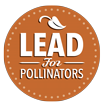Ohio beekeeper calls for industry-wide race to the top on pollinator protection before bees lose their race against time
Blooming flowers and the buzz of a new growing season inspires hope this spring after a long, challenging year. But as a beekeeper in Akron, Ohio, the spring planting of new crops also reminds me of my bees’ vulnerability. Too often, what begins as the humming of new life at the beginning of the season ends as thousands of dead bees in my hives. It’s devastating, year after year, to watch so many of these incredible creatures die.
Twenty years ago, U.S. beekeepers like me considered a 10% annual loss of our bees customary; now 60% losses are normal for beekeepers contracted to pollinate our food, and who live in agricultural areas. A new study published in Science sheds some light on why. It found that even though farmers are using lower amounts of insecticides than a decade ago, agriculture has become twice as deadly to bees. That’s because we’re using more of certain pesticides, like neonicotinoids, that are highly toxic to insect life, from bees and butterflies to dragonflies and mayflies. Scientists warn of an “insect apocalypse” as 40% of insect species face extinction in coming decades.
So I was heartened to see the largest U.S. food retailer, Walmart, step up this week to help protect bees. Without bees, the shelves at Walmart and every other grocery store would look pretty bare since one in three bites of food we eat depends on pollination from honey bees as well as native pollinators. Research shows that we’re already seeing shortages in key crops like apples and blueberries because of pollinator declines.
Walmart’s new commitments will help to decrease the use of pollinator-toxic pesticides on millions of acres of farmland around the world. Walmart is requiring all of the fresh produce farmers supplying its U.S. stores to adopt ecological farming methods called Integrated Pest Management (IPM) by 2025 and to get verified by independent third-party certifiers. IPM practices — including rotating crops, planting resistant crop varieties and fostering beneficial insects that kill pests without the chemicals — can decrease the need for toxic pesticides in the first place. Walmart is also encouraging fresh produce suppliers to phase out neonicotinoids and another highly toxic pesticide called chlorpyrifos, to avoid replacing them with other concerning pesticides, and to track and report use of these chemicals to assess progress.
With these commitments, Walmart is now leading the food retail industry on pollinator protection according to the Bee Friendly Retailer scorecard.
This is great news for bees, beekeepers and the farmers who rely on pollinators to grow abundant food. But it’s only a first step. Walmart needs to expand its commitments beyond the produce aisles. Research shows that the largest and most harmful use of deadly neonic pesticides for bees is as seed coatings for crops like corn and soy. Many analyses, including from the U.S. Environmental Protection Agency and University of Minnesota, show that these seed treatments don’t improve farmers’ yields or profit, so they come with an enormous cost to the environment without providing benefits. While we push for policy action to ban neonic coated seeds, retail giants like Walmart could make real change on the ground.
And one company cannot solve the pollinator crisis on its own. It’s time for other grocery stores like Kroger, the second largest U.S. food retailer, to step up and do their part. Kroger, which is headquartered here in Ohio, is falling behind on pollinator protection.
I hope Walmart’s new commitments are taken as a challenge to all food retailers to do better. Because what we need is an industry-wide race to the top on pollinator protection before bees lose their race against time.
—————————–
Michele Colopy is an Ohio beekeeper and executive director of LEAD for Pollinators. Thanks to Friends of the Earth for all of their work on behalf of pollinators.
